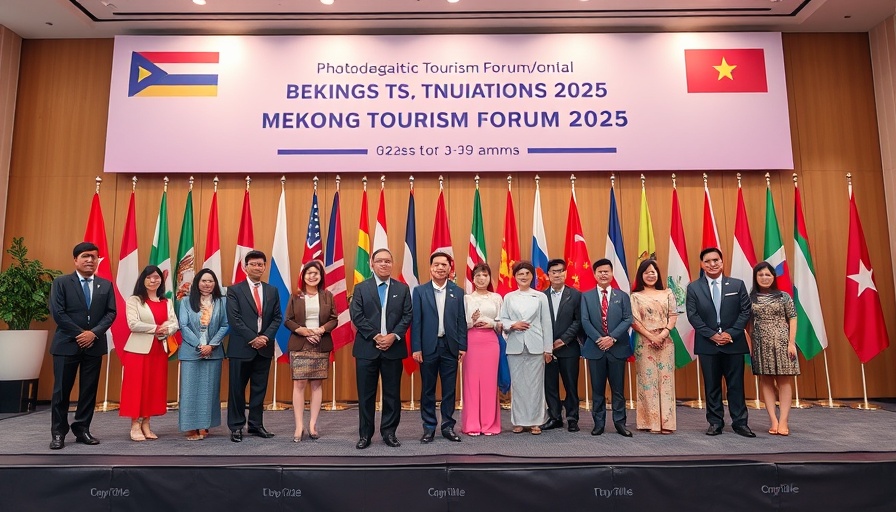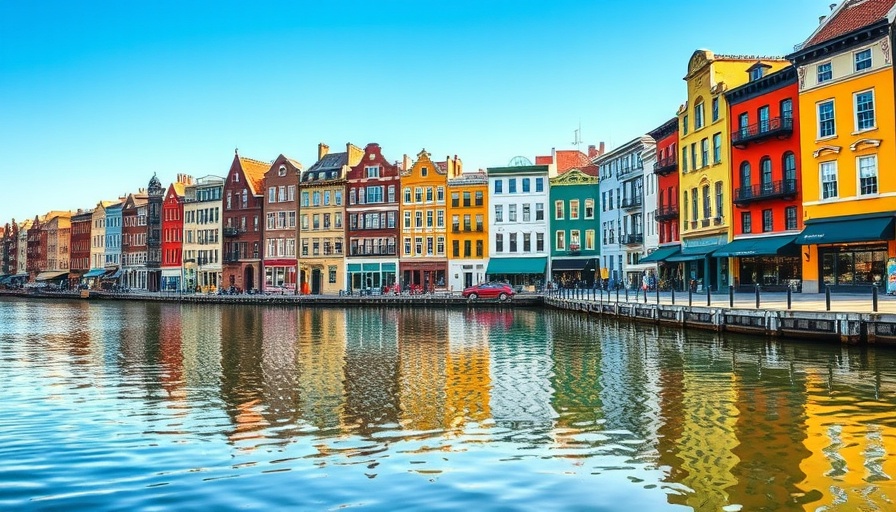
The Future of Sustainable Travel in the Mekong Region
As the Mekong region gathers momentum toward a shared vision for sustainable tourism, 2025 marks a pivotal year in redefining how we explore the wonders of Southeast Asia. The Mekong Tourism Forum 2025 held in Luang Prabang has set the stage for significant conversations among government leaders, tourism professionals, and local communities. Together, they are shaping a future that emphasizes responsible and sustainable travel practices, reflecting the desires of modern travelers.
A Collaborative Vision for 2030
This month’s newsletter highlights the strategic direction planned for 2030, emphasizing a collaborative approach among stakeholders. The focus is on not only enhancing tourist experiences but also ensuring that the local environments and communities benefit from tourism. With the increasing awareness around climate change and environmental issues, plans are in place to foster initiatives that promote eco-tourism, ethical tourism, and voluntourism.
Local Voices Driving Change
The voices of local communities play a crucial role in this evolving narrative. By incorporating their perspectives, the tourism sector aims to develop programs that are sensitive to cultural heritage and environmental sustainability. Engaging with local populations ensures that tourism can serve as a means of economic empowerment while promoting conservation efforts.
Top Sustainable Travel Trends to Watch
As we look ahead, several trends are emerging that align with the goals outlined in the Mekong Tourism newsletter:
- Community-Based Tourism: This form of tourism allows travelers to experience local lifestyles and traditions firsthand, which directly benefits host communities.
- Eco-Tourism Initiatives: Increased funding and support for eco-friendly businesses and experiences that prioritize ecological health.
- Voluntourism Opportunities: Encouraging travelers to engage actively in community projects during their travel experience helps bolster local capabilities and conservation endeavors.
The Emotional Connection to the Land
One of the key aspects of sustainable travel is the emotional connection it fosters between travelers and the natural world. By immersing oneself in the rich environment of the Mekong, travelers can cultivate a deeper understanding and appreciation for the landscapes and people they encounter. This connection often serves as a catalyst for more conscious travel choices in the future.
Challenges on the Road Ahead
While strides are being made toward creating a sustainable tourism framework, challenges lie ahead. It requires commitment from stakeholders at all levels—government agencies, tourism operators, and travelers themselves. Critical issues like acting against overtourism, addressing waste management, and protecting biodiversity must remain priorities as we navigate this journey.
What Travelers Can Do
As a traveler aiming to explore sustainably, it’s crucial to make choices that align with these evolving tourism strategies. Here are some practical insights travelers can implement:
- Opt for accommodations that prioritize sustainability and community involvement.
- Participate in local tours that focus on conservation and community benefits.
- Educate yourself about the cultural and environmental impacts of your travels.
Conclusion: Embracing the Journey Ahead
The Mekong region is on a promising path toward more sustainable tourism practices, and travelers hold the power to influence these developments. By making informed choices, we can help ensure that our wanderlust contributes positively to the destinations we cherish.
Join the movement toward responsible travel and explore the potential within the Mekong’s sustainable tourism initiatives. Let’s connect with the land, its people, and forge a future that honors both.
 Add Row
Add Row  Add
Add 




Write A Comment